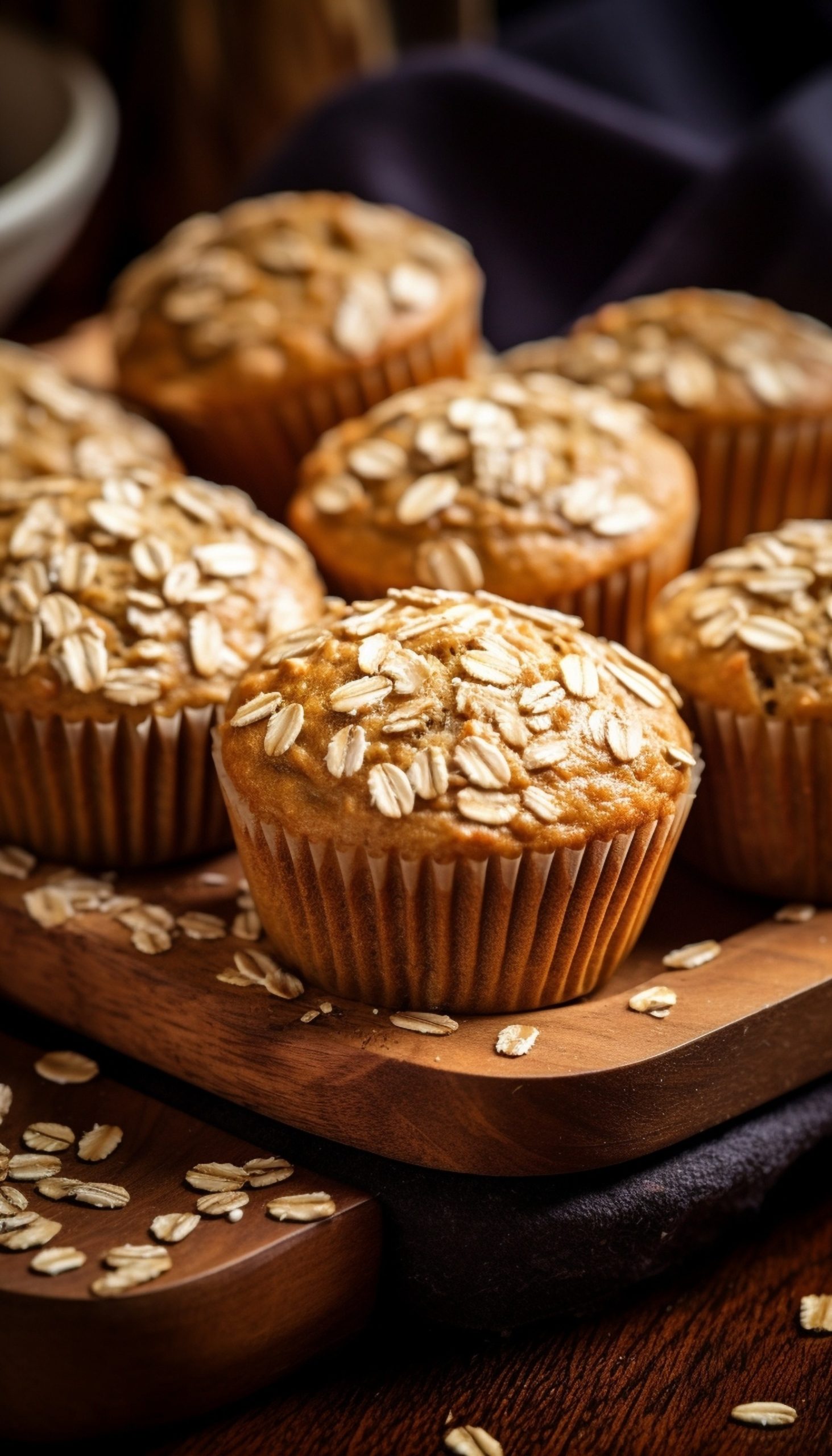Looking for a diabetes friendly recipe? Try these baked banana-nut oatmeal cups.
Here’s Why this Recipe is a Diabetes Friendly Recipe:
1. We know that high amounts of added sugar can have a negative impact on blood sugar. That’s why we kept the brown sugar in this recipe to ⅓ cup and used bananas, cinnamon and vanilla extract to sweeten these oatmeal cups. Traditional muffin recipes typically have double the amount of sugar, making them more like dessert than a healthy breakfast or snack option.
2. Rolled oats are an excellent source of fiber, specifically soluble fiber, which can help stabilize blood sugar levels and boost satiety. Each muffin supplies 1/4 cup of rolled oats, so you’ll be getting 3 grams of fiber with each serving.
3. The muffin tin is more than a vessel to cook these oatmeal cups, it also doubles-down as a way to have individual portions at the ready. This takes the stress out of measuring, makes snack time or breakfast time easy and helps you avoid over—or under—eating.
Can I Use Quick-Cooking Oats in Place of the Rolled Oats?
Yes, you can use quick oats in place of rolled oats. The two are fairly interchangeable in baked goods recipes. The major difference between them is texture. Rolled oats are a bit thicker and have a larger surface area than quick oats. So if you do use quick-cooking oats, the oatmeal cups won’t have the distinctive texture that comes with using rolled oats. But that will be the only noticeable difference, so swap away!
I Prefer Plant-Based Milks, Can I Substitute One for the Low-Fat Milk in This Recipe?
We like plant-based milk, too! While we didn’t experiment with using them in this recipe, we see no reason why a 1-to-1 substitution wouldn’t work here. Our recommendation is to choose plain, unsweetened plant-based milk. Flavorings and sweeteners will affect not only the nutrition but also the taste.
Can I Use an Egg Substitute for the Eggs?
If you’ve got a carton of egg replacement in your refrigerator and want to use it up, these oatmeal cups would be a good way to do that. Refer to the package on how much you’ll need to replace the two large eggs called for in this recipe. You can also substitute with a flaxseed or chia seed egg: Mix 1 tablespoon chia seed or ground flaxseed with 3 tablespoons water and let stand until thickened, about 5 minutes. Note that this will alter the nutritional profile of the recipe a bit.
How Long Do These Keep For? And Can I Freeze Them?
Yes, indeed! Wrap each oatmeal cup and store it in an airtight container in the refrigerator for up to 2 days or in the freezer for up to 3 months.
Diabetes Friendly Recipe: Baked Banana-Nut Oatmeal Cups
Ingredients (makes 12 muffins)
• 3 cups rolled oats
• 1 ½ cups low-fat milk
• 2 ripe bananas, mashed (about 3/4 cup)
• ⅓ cup packed brown sugar
• 2 large eggs, lightly beaten
• 1 teaspoon baking powder
• 1 teaspoon ground cinnamon
• 1 teaspoon vanilla extract
• ½ teaspoon salt
• ½ cup toasted chopped pecans
Directions
1. Preheat oven to 375°F. Coat a muffin tin with cooking spray.
2. Combine oats, milk, bananas, brown sugar, eggs, baking powder, cinnamon, vanilla and salt in a large bowl. Fold in pecans.
3. Divide the mixture among the muffin cups (about 1/3 cup each).
4. Bake until a toothpick inserted in the center comes out clean, about 25 minutes.
5. Cool in the pan for 10 minutes, then turn out onto a wire rack.
6. Serve warm or at room temperature.
Tip: People with celiac disease or gluten sensitivity should use oats that are labeled “gluten-free,” as oats are often cross-contaminated with wheat and barley.
Nutrition Facts (per one muffin serving)
Calories 176
Fat 6g
Carbs 26g
Protein 5g
Click here for full diabetes friendly recipe.






